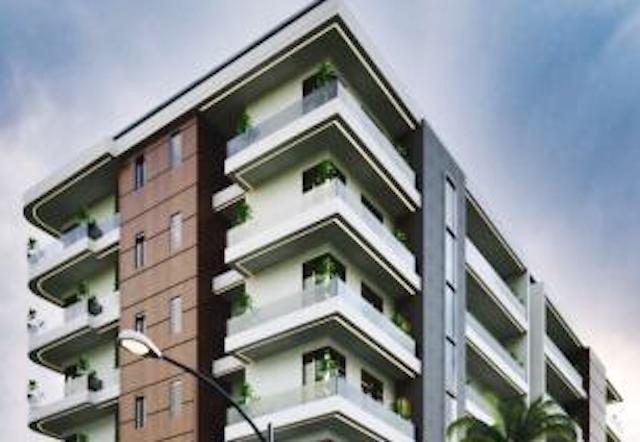Lagos prime two-bedroom rentals have surged to N38m annually, according to Northcourt’s H1 2025 Nigeria Real Estate Market Review.
The report revealed that luxury prices have risen consistently in the past 18 months, with one-bedroom flats selling for N180m, while Old Ikoyi three-bedroom units now average between N700m and N1.2bn.
According to the report, high-value penthouses also command as much as N8bn, a trend largely driven by diaspora investors, high-net-worth individuals, and expatriates seeking comfort, exclusivity, and smart living features in prime gated communities.
It stated, “Average rental and sale prices of apartments have increased in the past 18 months. Two-bedroom luxury rentals in Lagos have reached as high as N36m per year, while one-bedroom luxury flats are available for purchase at N180m. Old Ikoyi three-bedroom units average between N700m and N1.2bn, and four-bedroom penthouses are priced at N2.1bn, with an upper limit asset asking at N8bn (with a two-room servants’ quarters). US- and UK-based diaspora investors continue to be a key segment of the luxury buyer universe.”
According to the report, the high-end real estate market in Nigeria continues to attract diaspora investors, though South African promoters are making some headway into Nigeria’s investor market.
It added, “HNIs and expatriates are contributing to this demand. The luxury real estate market is projected to reach $4.34tn by 2029.’’
The demand for properties in high-end locations is on the rise, with a focus on gated communities that provide advanced perimeter detection, sustainability-powered lighting and waste management systems, smart home technology, and expansive living spaces.
‘Upper middle-income buyers prioritise space, particularly if they have a family or desire ample room for comfort. Certain neighbourhoods are more expensive. This is usually due to proximity to reputable schools, efficient waste management, air quality or an overall ambience.
“This has encouraged supply. Quantum Properties is simultaneously developing Quantum Luxury Towers and Metropolitan Towers on Ozumba Mbadiwe Street in Victoria Island, Lagos. XBD Collective designed the 28-storey residential Metropolitan Towers. El-Alan Construction Company is the main contractor. The 34,500 sqm building contains a basement, ground floor, 27 residential floors, and two rooftop levels. Quantum Luxury Towers is projected to finish in December 2027. SVA Architects and CKR Consulting Engineers are the design team. Cappa and D’Alberto are the main contractors.”
The report asserted that homelessness, lack of property rights, and limited access to financing play a major role in slowing down housing development.
Speaking on the hospitality sector, the report noted that Nigeria remained the largest hotel development pipeline in Sub-Saharan Africa, with 7,281 rooms in 47 hotels, per research from W-Hospitality Group. Currently, 2,868 rooms are under construction on-site, demonstrating a strong dedication to the continuous development of infrastructure.
It added, “This places Nigeria ahead of key markets, South Africa (4,131 rooms) and Ethiopia (5,133 rooms). Nigeria’s hospitality sector has retained investor interest. The development of the Radisson Blu Hotel in Abuja and the Marriott Executive Apartments in Lagos reinforces the growing demand for premium business lodging.
“Nigeria’s hotel pipeline development is primarily driven by global financing searching for outsized returns, urbanisation, increasingly route-specific domestic travel, and corporate activity. Lagos, Abuja, and Port Harcourt lead by total number of flights. The number of projects that are currently under construction suggests that project execution is resilient, regardless of economic challenges.
“Africa Travel entered the Kenyan market by acquiring Pollman’s Tours & Safaris, a 60-year veteran in Kenya’s tourism industry. The agreement permits Africa Travel to temporarily maintain Pollman’s brand identity while fusing its services into a comprehensive pan-African travel network. This acquisition follows a February investment in Africa Travel by Alterra Capital, which also acquired a majority stake in the Java Coffee chain back in January. Analysts perceive that this acquisition highlights a wider trend of consolidation and investment in African tourism.”















